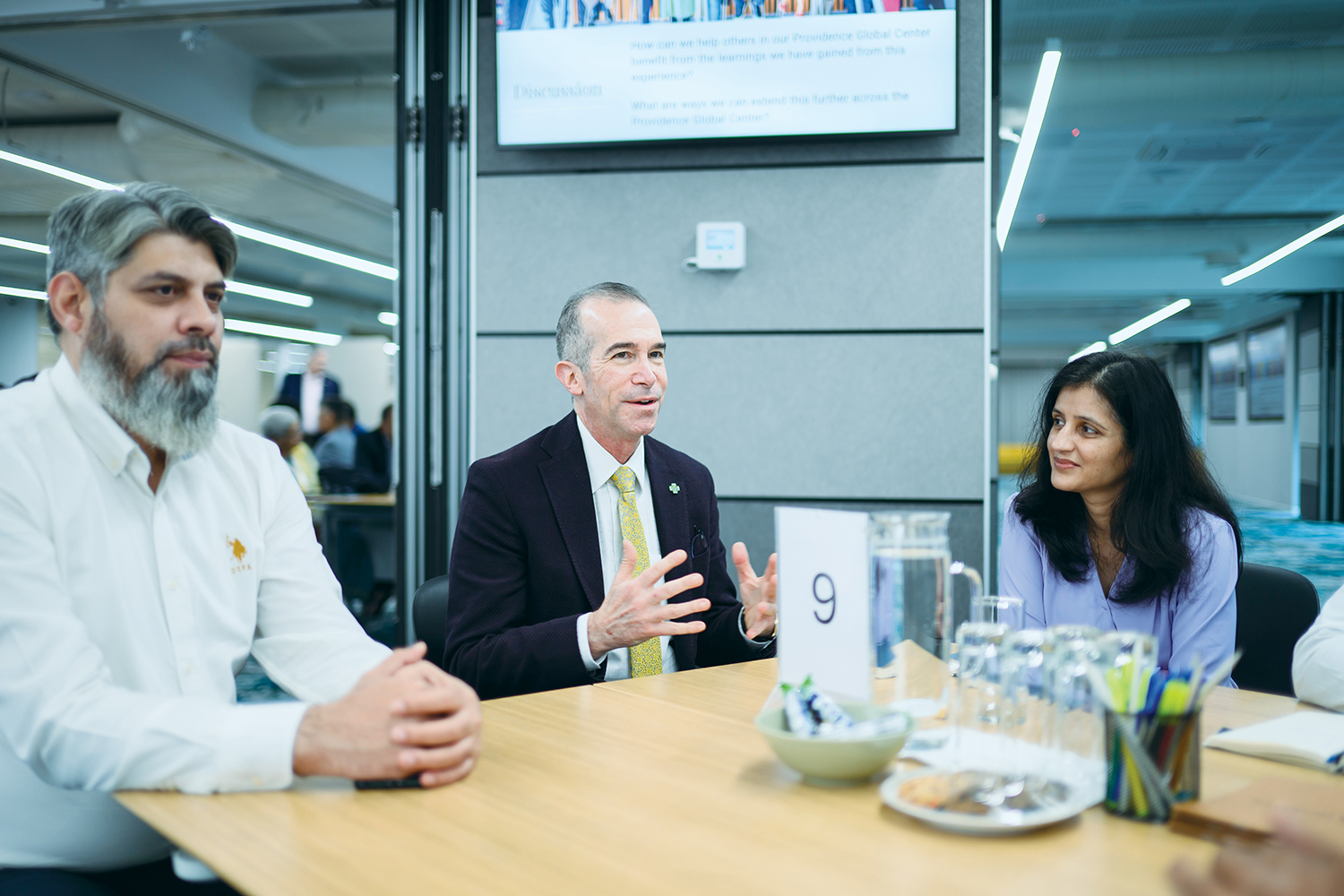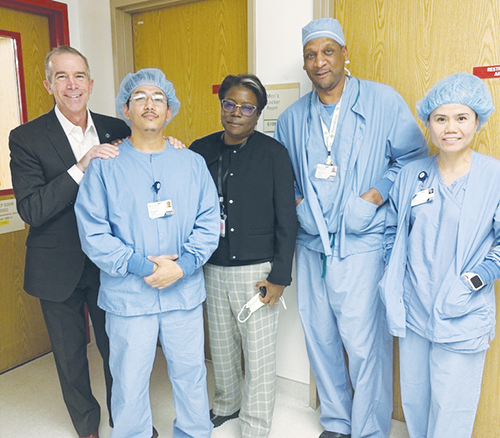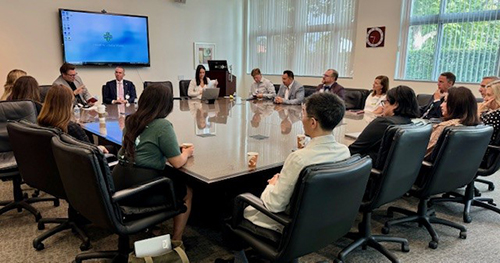
After he was announced as president and CEO of Providence St. Joseph Health last summer, Erik Wexler visited as many of Providence's 51 hospitals and other locations in seven states as he could before he assumed his new role in January.
Though he'd been in leadership at Providence for nine years — most recently as chief operating officer — Wexler wanted to verify what he thought he knew about the realities on the ground. Through dialogue with associates, physicians, board members and others at each stop, he says he learned "that delivering health care, and especially whole-person care to our community, is a challenge in this environment and may be an even bigger challenge in 2025 than it was in 2024."
But, he says, he "learned very acutely that we are called to reduce the tension that is in the way of our caregivers and clinicians to deliver care in a way that is especially compassionate and obviously safe and with quality." He says he also learned "it is more important than ever to find a way to help (staff) restore and recover from the challenges they have faced so they can come back to work and feel just as inspired each day as they were the day before."
Three pillars
Wexler has more than three decades' experience in health care leadership.
He joined Providence in 2016 and ascended to chief operating officer after holding a series of top executive positions, including president of operations and strategy for Providence's southern region. Prior to his time at Providence, he was chief executive for Tenet Healthcare's Northeast region and had held executive positions at Tenet's Saint Vincent Hospital in Worcester, Massachusetts; Vanguard Health Systems; and LifeBridge Health.

As Providence's chief operating officer, Wexler had an office across the hall from President and CEO Dr. Rod Hochman, who had worked 45 years in health care, with 17 years in leadership at Providence and its affiliates.
Once Wexler was announced as Hochman's successor, the two men met continually — when Wexler wasn't on his seven-state odyssey — to talk through each day's decisions and plan for the baton handoff.
Wexler now is focused on leading the three-pillared strategic direction that Providence's board sponsors recently approved. The first pillar is to be the best place to give and receive care, removing the tensions that stand in caregivers' way. For instance, the system plans to continue rolling out ambient technology that documents provider-patient conversations and relieves the burden on physicians of typing up visit notes. The second pillar is to expand opportunities for patients to access care virtually, including eased online scheduling and appointments. The last pillar is to responsibly use artificial intelligence and other advanced technology. Wexler says AI and other technologies have great potential to harness lifesaving information from data.
Remaining steadfast
Several focus areas that Providence had prioritized during his time in leadership will continue to be of top importance, Wexler says.
Environmental stewardship, which Wexler notes Pope Francis had emphasized as essential, will remain a key concern for Providence, with the system continuing to pursue carbon neutrality. Wexler notes that a healthy environment is a gift to present generations — and one that people today must protect for future ones.
Diversity, equity and inclusion also will remain an essentiality for Providence. Wexler says that while he understands there has been some controversy around the concept, Providence sees DEI as core to how it operates. He says the Ethical and Religious Directives for Catholic Health Care Services calls upon ministry facilities to embrace other cultures and to honor their dignity. He says it is incumbent upon Providence to ensure all cultures represented within its service areas are also well represented on staff.
And, a particular type of equity — health equity — also will remain a priority, he says, explaining that it is not only the right thing to do to ensure health disparities are addressed, but also prudent, since unaddressed health disparities can lead to population health crises.
He says a related matter is the value-based care he has helped implement at Providence, which will remain important. He says when implemented well, value-based care can address the access gaps that marginalized people face in the health care system and help bring the interests of patients, providers and payers into better alignment. The focus on prevention and holistic care can lead to better health outcomes for patients while protecting the interests of providers and payers, he says.
When it comes to advancing these priorities, Wexler says, "we will remain steadfast."
Facing a poly-crisis
Wexler acknowledges that he begins his new role in a time with significant headwinds against health care providers. "I've been commenting recently that we call this a poly-crisis," he says, "where Medicaid cuts, tariffs, the labor crisis, the extraordinary material impact of commercial payers slowing paying and denying payment and down coding are all preventing health care organizations from advancing their strategies."
He adds, "That will be bad for all of us in the U.S."
But he remains hopeful about the ministry's ability to succeed.

He says that he has been privileged to experience an in-depth and personally meaningful formation in Catholic health care, and what he has experienced bolsters his confidence in the ministry.
His formation began when he first served in Catholic health care as CEO of Tenet's Saint Vincent Hospital. It has continued during his time at Providence, including with both formal and informal development from that system and CHA. He says it has helped him to understand that he has been called to serve the ministry at this time and in this role.
"When we think of the healing ministry of Jesus, that should resonate with us all," he says.
He notes that he views the work of Catholic health care as akin to the work of the Good Samaritan. "That is what I love about Catholic health care — that we commit ourselves through our mission and the ERDs to do what is best for those we serve in a way that we would expect for ourselves," he says.
Wexler points out that Catholics were the founders of health care in the United States. "I sometimes worry that we are not embraced for what we created in this country and for what we can do in the future," he says.
"We should remain steadfast as Catholic health care providers to advance that healing mission for those who depend on us and do it in a way that does not compromise our values," he says. "We need to embrace our religious freedoms and carry forward what we have been given as an inheritance by those who came before us."
